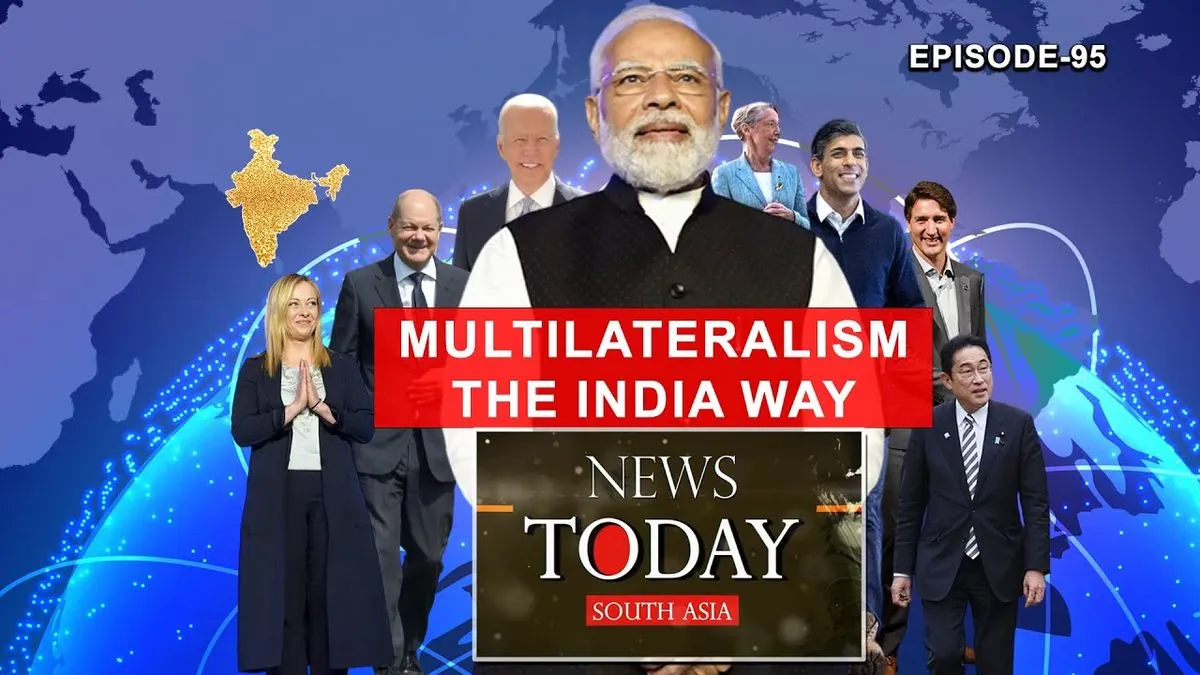India's "Neighborhood First" policy, introduced by Narendra Modi a decade ago, has encountered significant obstacles, as evidenced by recent events in Bangladesh. The resignation of long-time ally Sheikh Hasina has exposed the shortcomings of India's regional approach, rooted in domestic politics and ideology.
Sheikh Hasina, daughter of Bangladesh's founding father Sheikh Mujibur Rahman, fled the country on August 5, 2024, following widespread protests. Her departure marked the end of a 15-year rule that had initially been seen as a success story for India's regional diplomacy. However, Hasina's transformation into an authoritarian ruler and India's unwavering support for her regime ultimately backfired.
India's policy failures in the region stem from various factors:
- Over-securitization of diplomacy
- Modi's strongman image
- Preferential treatment for favored corporate interests
- Adherence to Hindu nationalist ideology
The Bharatiya Janata Party's (BJP) pursuit of a "Hindu Rashtra" has particularly damaged India's regional interests. The 2019 Citizenship Amendment Act (CAA), which fast-tracked citizenship for non-Muslim minorities from neighboring countries, fueled criticism in Bangladesh and other Muslim-majority nations.
"Bangladeshi immigrants are termites, illegal infiltrators, and a threat to national security."
Such rhetoric, combined with the controversial National Register of Citizens (NRC) in Assam, has heightened tensions and suspicions about India's intentions in the region.
India's security-centric approach to diplomacy has manifested in various ways:
- Shunning pro-democracy protesters in Myanmar
- Establishing ties with Taliban rulers in Afghanistan
- Heavy-handed border policing with Bangladesh
These actions have alienated populations in neighboring countries and undermined India's historical, cultural, and economic ties in the region.
Modi's strongman politics have further shaped India's regional diplomacy. Examples include:
- Cross-border raid in Myanmar (2015)
- Trade blockade on Nepal (2015)
- Campaign to boycott Maldives tourism (2023)
The perception of cronyism, particularly involving billionaire Gautam Adani, has raised suspicions about India's economic interests in the region. In Bangladesh, an Adani Group power plant project drew criticism for being expensive and risky while allegedly benefiting the Indian conglomerate.
The BJP government's Hindu nationalist agenda has had far-reaching consequences. Modi's Independence Day address on August 15, 2024, framed India primarily as a Hindu homeland, contradicting its multicultural and multireligious heritage. This approach has fueled anti-India sentiment in Bangladesh and other neighboring countries.
As India aspires to be a rising global power, it faces challenges in its immediate neighborhood. The events in Bangladesh demonstrate that citizens of neighboring countries can assert their agency against authoritarian regimes, even those supported by India.
To address these issues, India must:
- Reassess its regional approach
- Move away from security-centric diplomacy
- Engage with diverse stakeholders in neighboring countries
- Address concerns about its domestic policies and their regional impact
By acknowledging these challenges and adapting its strategy, India can work towards rebuilding trust and fostering more balanced relationships with its South Asian neighbors.
